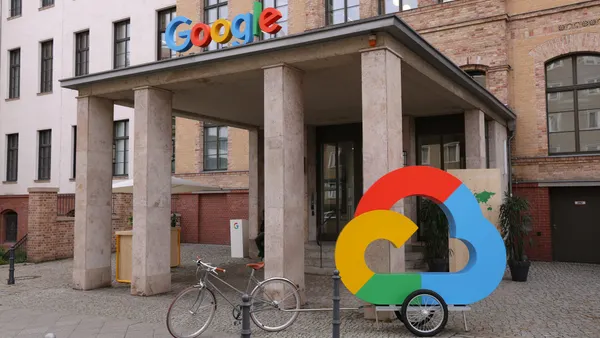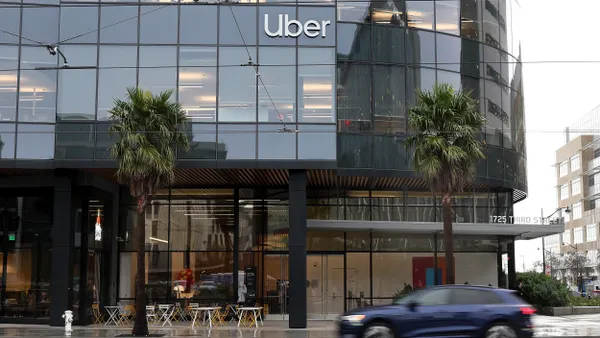Dive Brief:
- The combined capital expenditures of Microsoft, Alphabet, Amazon and Meta jumped to $112.5 billion during the last quarter, a year-over-year increase of 77%, according to a CFO Dive analysis of figures reported by the companies.
- Microsoft led the way with $34.9 billion in capex for its last quarter, followed closely by Amazon at $34.2 billion. Capex levels at Alphabet and Meta rose to $24 billion and $19.4 billion, respectively. The surge comes as tech giants remain locked in a fierce artificial intelligence investment race.
- “These numbers are mind bending, and I think that they’re going to continue to move higher,” Gene Munster, a managing partner at investment firm Deepwater Asset Management, said during a CNBC television interview last week. “We’ll slow down at some point… But I don’t think it’s close.”
Dive Insight:
CFOs across the U.S. and other countries are feeling AI investment pressures from boards and investors, according to recent survey results from finance software maker OneStream. Nearly all (97%) of the finance chiefs polled said their boards expect a regular readout on AI investment and progress, with cost savings (66%), return on investment (65%) and productivity gains (63%) reported as top metrics, a press release on the findings said.
Big tech’s latest earnings season, which kicked off last week, showed that Microsoft, Amazon and other major players remain bullish when it comes to their AI spending despite growing scrutiny from investors and fears of an investment bubble.
“We'll continue to make significant investments, especially in AI, as we believe it to be a massive opportunity with the potential for strong returns on invested capital over the long term,” Amazon CFO Brian Olsavsky said during a Thursday earnings call.
Amazon's net sales increased 13% to $180.2 billion in the third quarter, compared with $158.9 billion a year earlier. The tech giant’s $34.2 billion in total capex during the last quarter represents a year-over-year increase of about 60%.
The company expects its full-year capex to be about $125 billion, with that amount projected to increase in 2026, Olsavsky said.
Microsoft and Alphabet saw their capex levels rise by 74.5% and 84.6%, respectively, in the last quarter on a year-over-year basis. Of the four tech giants, Meta’s capex grew the most, rising 110.9%.
Wall Street reactions to the companies’ earnings results were mixed last week, despite revenue gains across the board.
Alphabet and Amazon shares rose after they reported their earnings, but Microsoft and Meta saw their stock prices decline. Meta’s stock was hit particularly hard, dropping by more than 10% on Thursday. The Meta sell-off was largely due to an increase in capex “without a clear way of generating significant new revenue from the investment,” according to a Forbes report.
Current AI spending by big tech already exceeds the internet boom’s peak relative to gross domestic product, according to a recent Morningstar article penned by Larry Swedroe, a financial consultant and former director of research at wealth-management firm Buckingham Wealth Partners.
This scale of investment requires generating $2 trillion in annual revenue by 2030 to justify costs, yet current AI revenues stand at only $20 billion — requiring a 100-fold increase, Swedroe said.
“While the optimal strategy would be moderate, coordinated investment, each company fears being left behind,” he wrote. “This forces all players into aggressive spending, potentially destroying the collective profit pool even if individual firms succeed technologically.”
The article was based on a research paper by Kai Wu, chief investment officer of Sparkline Capital, an investment management firm.















